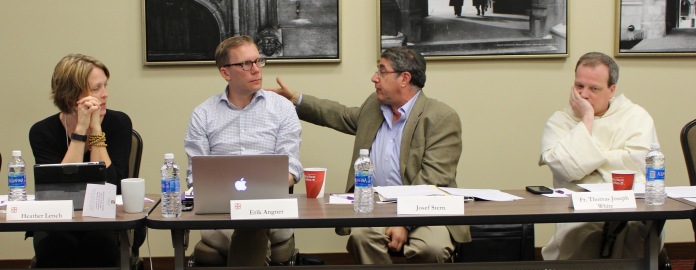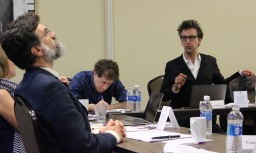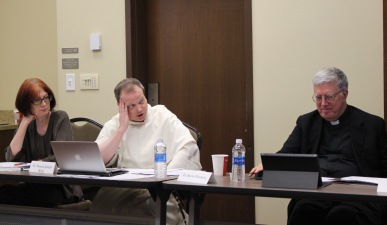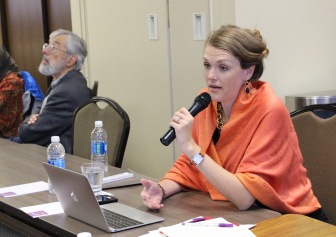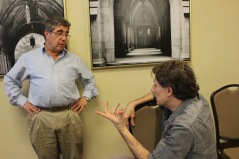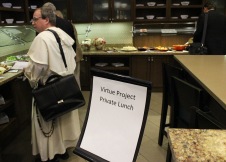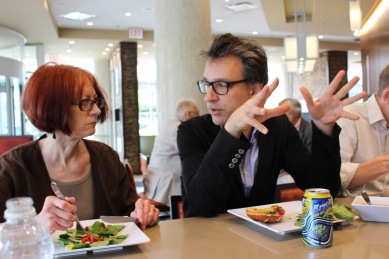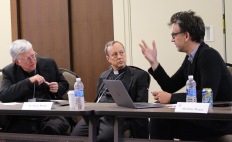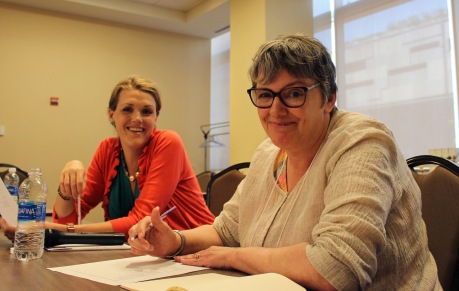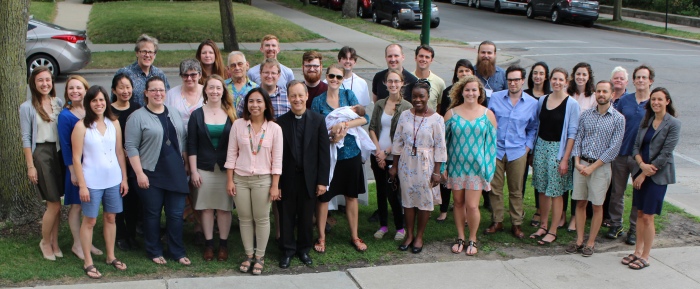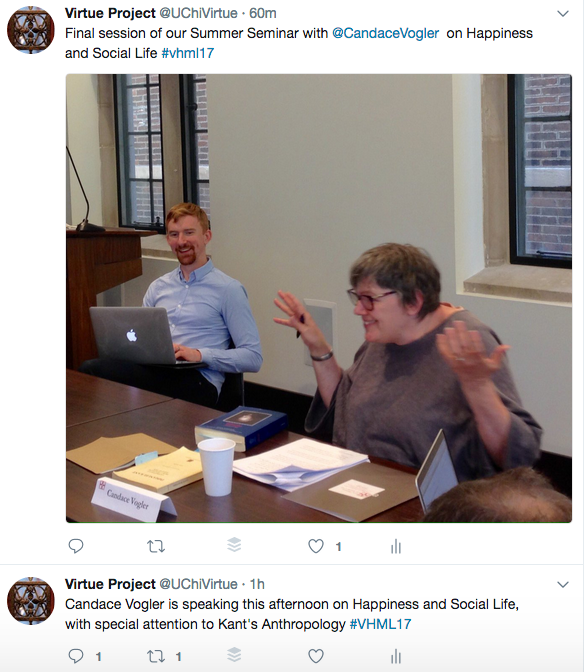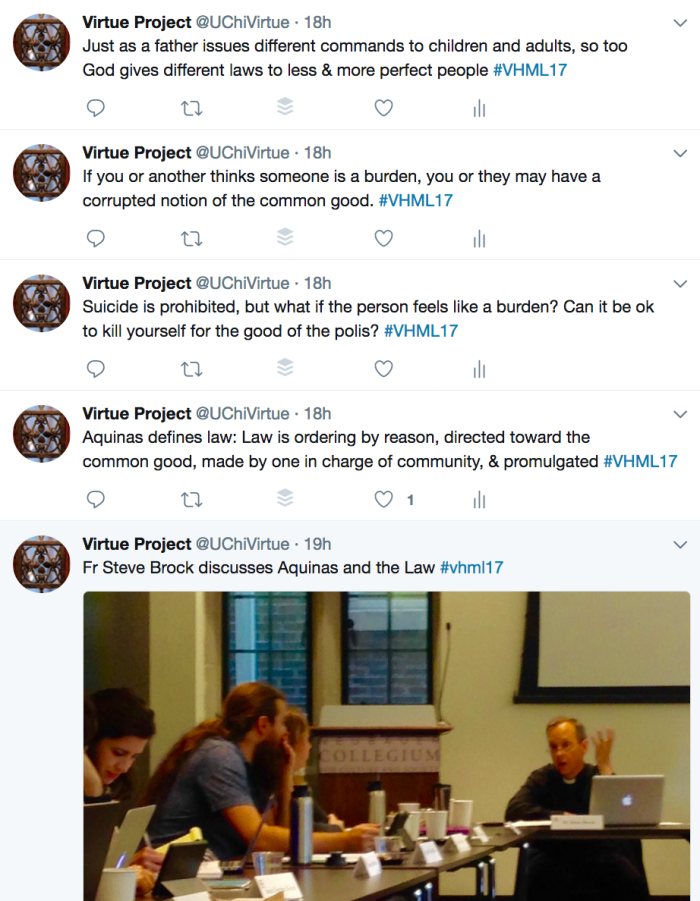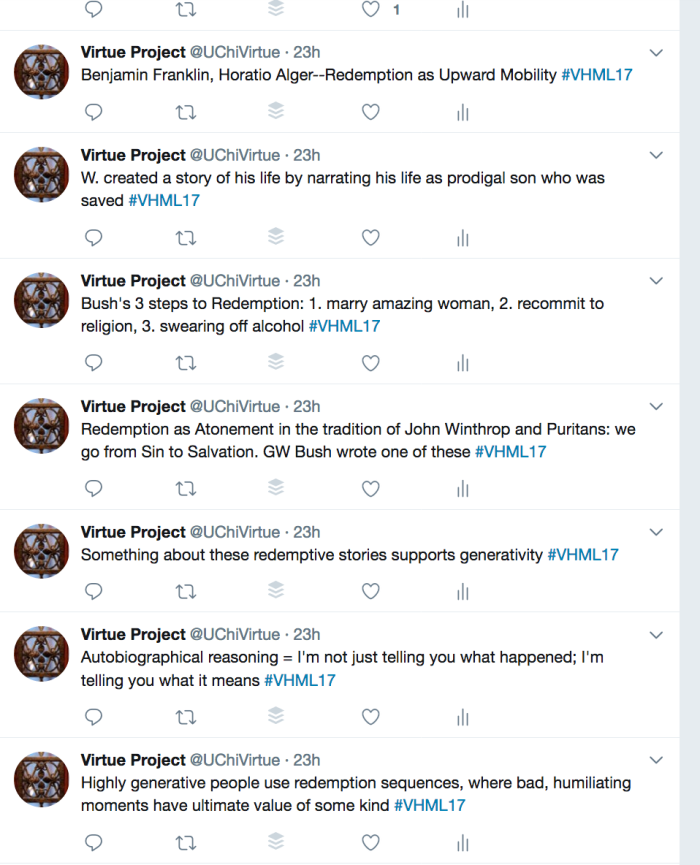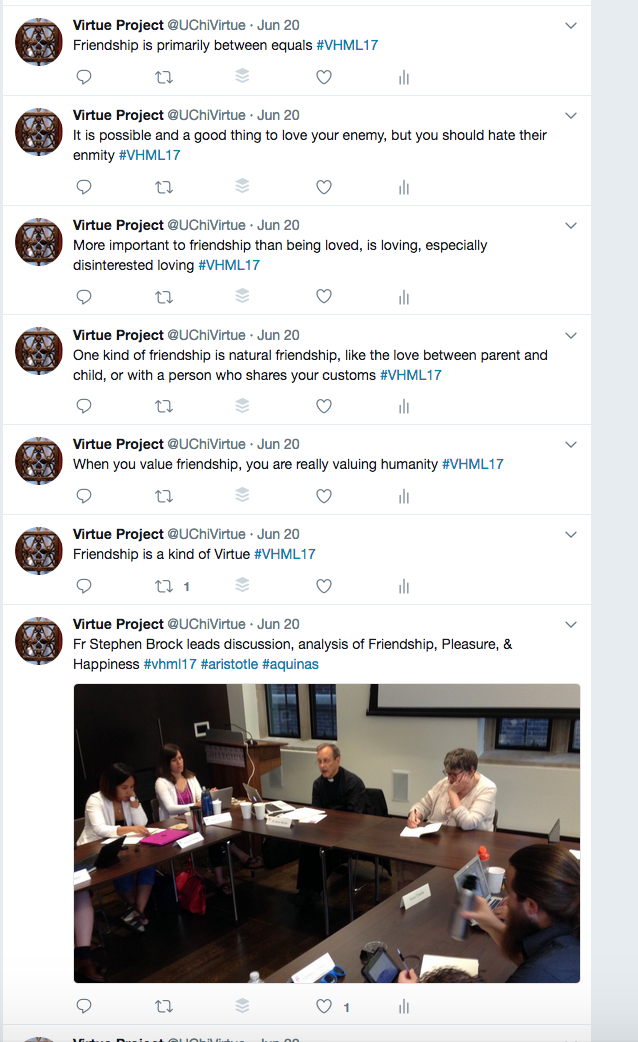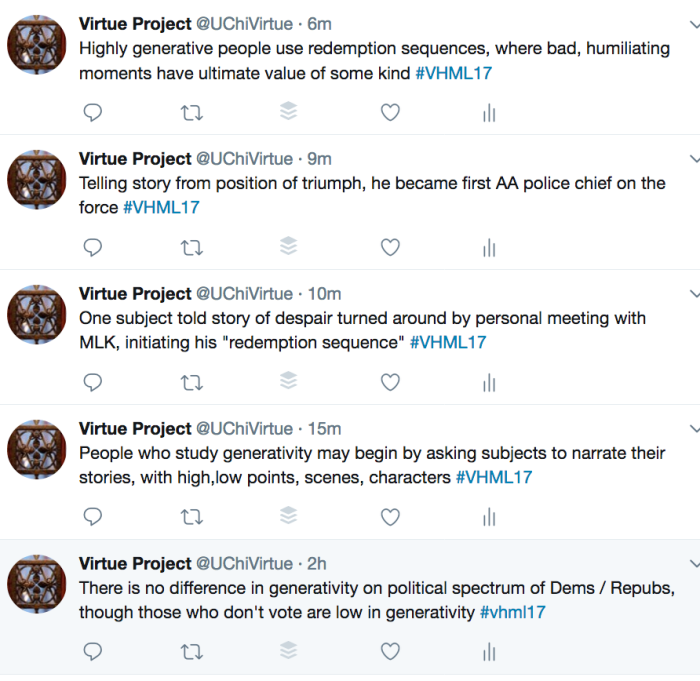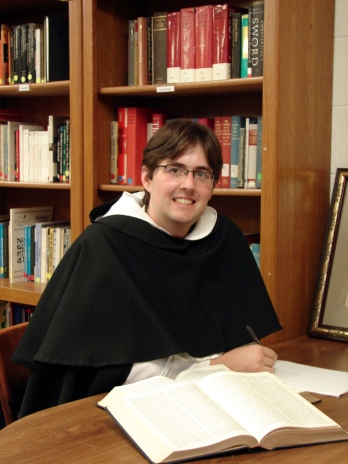
Cabrini Pak was a participant at our June 2017 summer seminar, “Virtue, Happiness, & Self-Transcendence” at the University of Chicago, and wrote this reflection piece based on the 5-day experience. Pak is a PhD Candidate in Religion & Culture at and Teaching Fellow, The Tim and Steph Busch School of Business and Economics, at the Catholic University of America.
There were just over two dozen of us “youngster” scholars, mingled with about half dozen seasoned scholars, and we spent one week together discussing some deep questions about the human person and how one can (or already does) strive towards the “good.” Several disciplines were represented, falling into the larger categories of philosophy, psychology, theology, ethics, and religion and culture. This unique experience, made possible by a generous grant from the John Templeton Foundation, and co-sponsored by the Hyde Park Institute, brought together people from all over the world: Canada, Germany, Italy, Nigeria, the Philippines, Portugal, and the United States. The expert speakers in our group included a psychologist, a theologian, and a number of philosophers.
The first day required a massive readjustment on my part in listening to people speak and use their different vocabularies. I often found myself having to ask what a person meant by simple words, words that we use in everyday life but can take on different meaning in the academic milieu – “know,” “good,” “love,” “habit,” “value,” and “incurable.” By the end of the week I felt as if I had learned four different languages. Although all the talks were delivered in American English, the nuances of meaning attached to certain words in the different disciplines reflected very different styles of communication, and perhaps even different ways of knowing things.
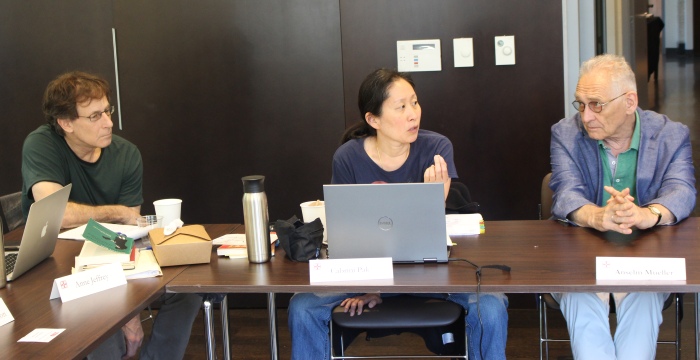
I found the discussions inside and outside the formal seminar setting both energizing and draining. They were energizing because we all seemed to have some deep concerns in common, like what it means for human beings to thrive or how happiness in the human life can be achieved, and yet had such different perspectives on how this could or should be accomplished. Debating these differences gave me much to think about. These same discussions were also draining because I was well outside my comfort zone, both as a 95th percentile introvert who requires long periods of silence and solitude, and as a religion and culture scholar from a distinctly Catholic tradition. I had to make my personal boundaries more porous and be willing to temporarily let go of the sharply defined conceptual boundaries of my discipline. In the end, four lessons remained for me as I strive to pursue a more holistic understanding of human flourishing and a practical, communicable, understanding of a “common good” that local communities can strive for.
Continue to break down interdisciplinary and cultural barriers
Often, especially in the academy, disciplines remain siloed and people do not reach out beyond their home disciplines to discuss the “tough questions” that affect us all. Cultural divides, like those between communities of different faiths, linguistic origins, ethnicities, and social class, can also erect barriers to common understanding and meaningful collaboration. I learned this week how important it is to reach out beyond my own discipline and to the fringes of my cultural horizons in order realize a larger-scale vision of a common good that allows for the fullest development of all.
Find a common vocabulary
Words mean something. Sometimes the same word means very different things to different people, depending on where they come from how they use that word in a variety of contexts. Scholars, when dialoguing with other scholars from very different fields, will need to establish some kind of consensus on a basic vocabulary that they can agree upon in order to produce insights that would be valuable to their respective fields. In my case, I have already I identified a subset of words that can be included and need to be collaboratively defined better in discussions around a “common good” – transcendence, virtue, generativity, the “good life”, the ultimate good(s), truth, happiness, joy, human dignity, rights and responsibilities, personal concerns, friendship, telos, and of course, common good.
Expand analysis beyond the individual
Much of what we talked about at the seminar revolved around a specific unit of observation: the individual human being. His or her personal context was examined, whether it was about transcendence, virtue, generatively, telos, or some other factor. My theological interest in realizing a “common good” in a Catholic sense requires me to look not only at the implications for a single human life, but also at the implications for couples, friends, families, communities, cities, countries, and the world as a whole. Things get more complicated when you go from looking at one human being to looking at two human beings, in for example, in the dynamics of friendship. Tensions or dialectics within and between each person must be harmonized in order for the “good” to be realized optimally for both. They get even more complicated when you start looking at group dynamics. I will need to be attentive to the proper extensions of our conversations during this seminar to more communal concepts like solidarity, compassion, subsidiarity, and shared concerns.
Co-author works using above three principles
I tend to agree with Dr. Candace Vogler’s idea that it’s important to “get a kind of deep integration between people working in very different disciplines without relegating their work to the margins of less widely read, explicitly interdisciplinary publications.”[1] I also believe that co-authoring works between scholars of different disciplines, perhaps placing the work within a home discipline publication, could potentially bear much fruit in advancing our understanding. That said, there may also be a benefit to relaxing the borders of the bounded disciplinary journal’s sandbox and sending out a few tendrils to promising interdisciplinary journals. When aligned with the above three principles, perhaps some good fruit will come of such collaborative endeavors.
In the end, I am very grateful to have had this opportunity to gather with such special people in a way that promoted my development both as a scholar and as one in service to a much larger and more diverse community. Thanks to all who made this experience possible, especially the John Templeton Foundation, the Hyde Park Institute, and Candace Vogler, Jennifer Frey, Valerie Wallace, and Jaime Hovey of the project Virtue, Happiness, & the Meaning of Life. You have given me a gift that I will continue to unwrap over the years to come.
[1] Courtney C.W. Guerra, “Scholarship of Self-Transcendence: Candace Vogler leads a search for the meaning of life,” Tableau (Spring 2007), accessed June 27, 2017, https://tableau.uchicago.edu/articles/2017/05/scholarship-self-transcendence.
